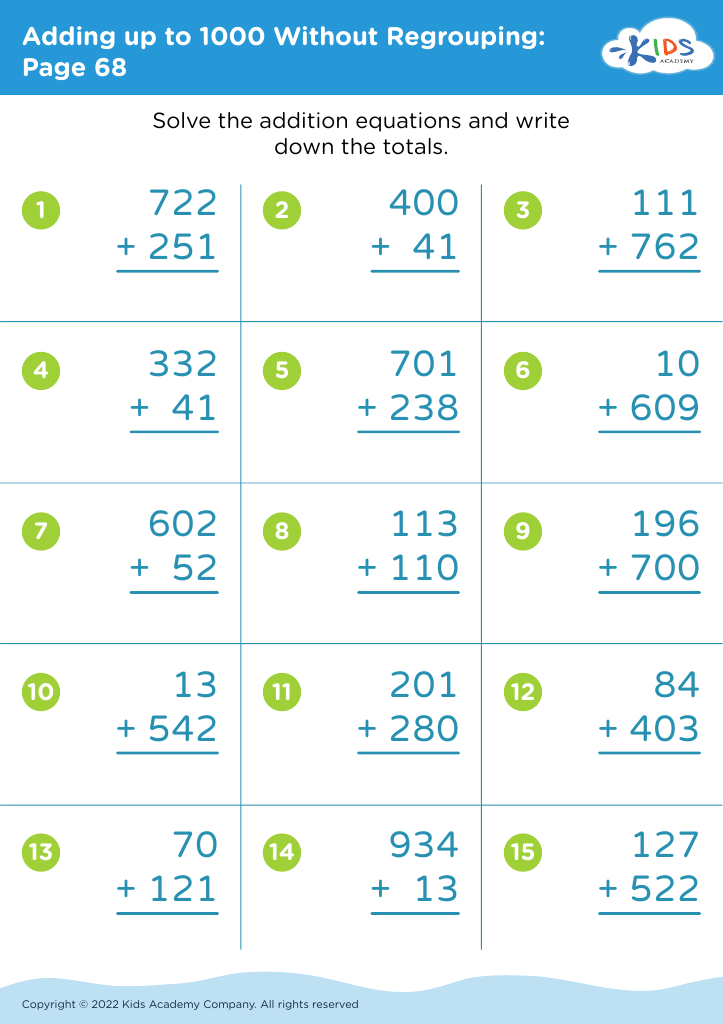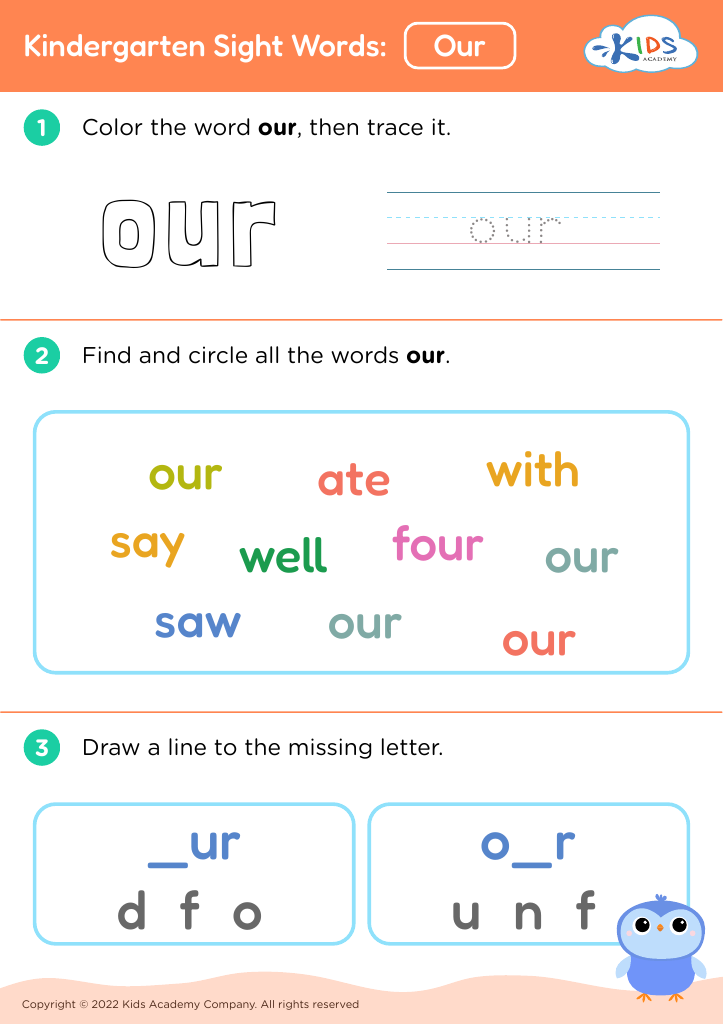Understanding number sequences Worksheets for Ages 5-8
8 filtered results
-
From - To
Discover our engaging and educational "Understanding Number Sequences Worksheets" designed specifically for children ages 5-8. Our carefully crafted exercises help young learners grasp the essential concept of number patterns and sequences through fun activities like fill-in-the-blanks, coloring, and identifying patterns. These worksheets not only enhance mathematical skills but also promote critical thinking and problem-solving. Ideal for classroom use or at-home learning, our resources are aligned with early learning standards. Watch your child's confidence soar as they master number sequences with our colorful and interactive worksheets. Start building a solid foundation in numeracy today!
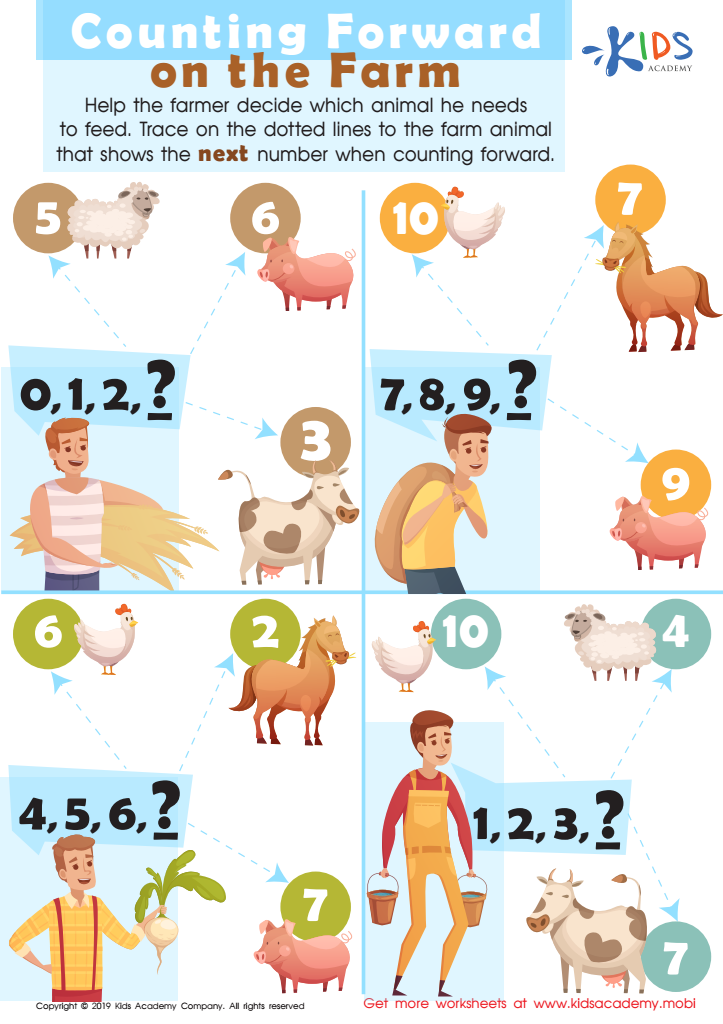

Counting Forward On the Farm Worksheet
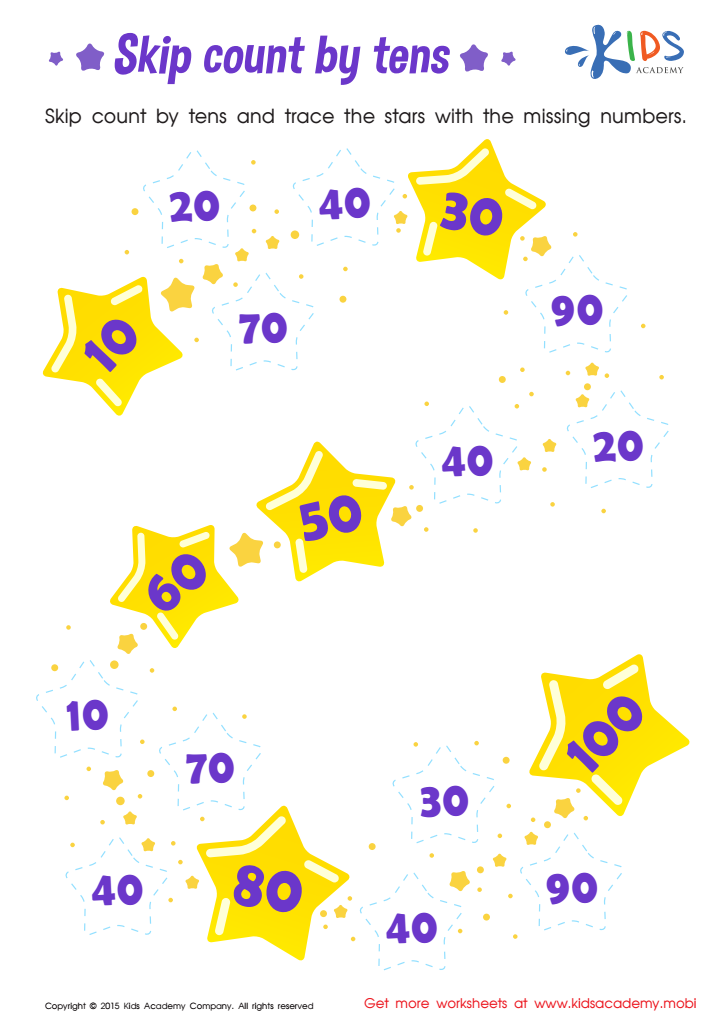

Learn dozens: Skip Count by Tens Printable
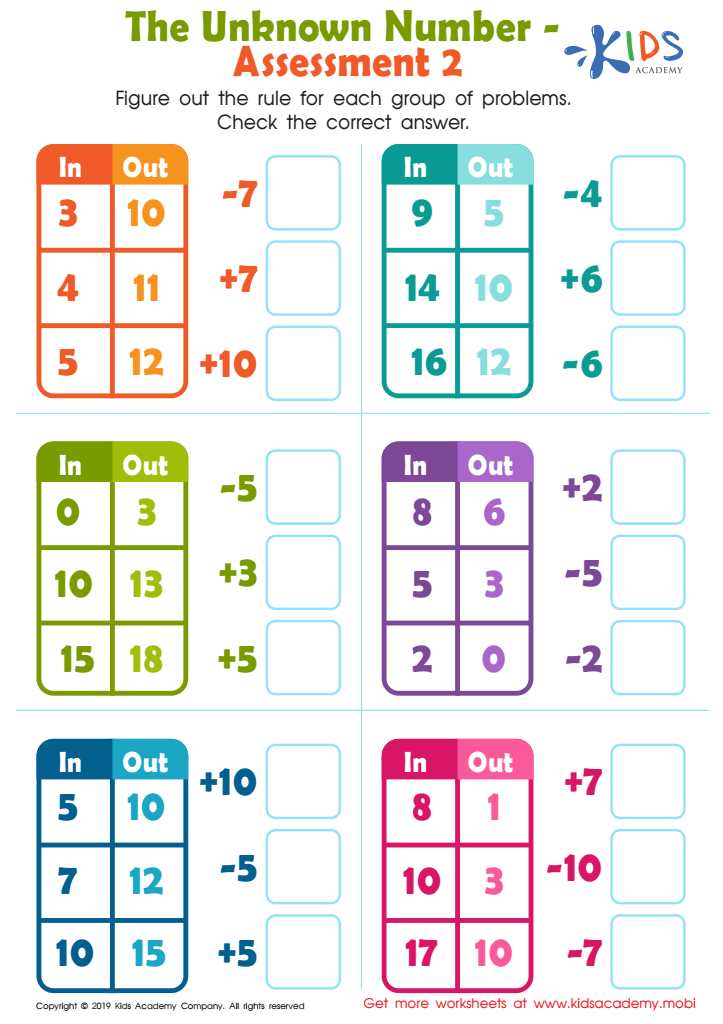

The Unknown Number - Assessment 2 Worksheet
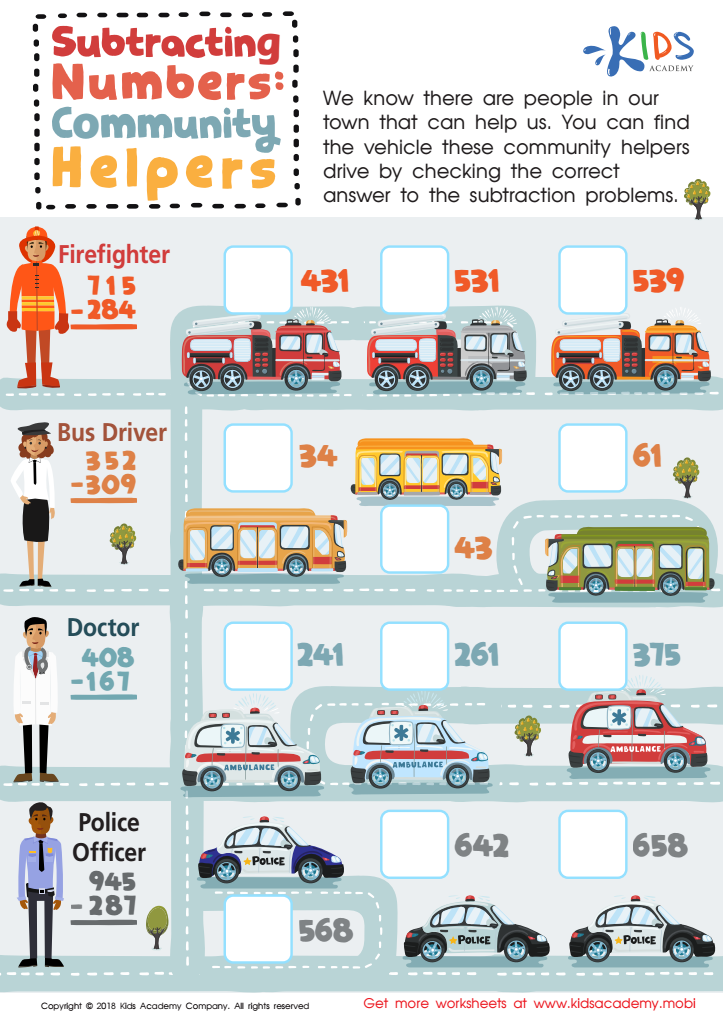

Subtracting Numbers: Community Helpers Worksheet
Understanding number sequences is crucial for children aged 5-8 as it lays the foundation for future mathematical skills. During these formative years, children begin to develop critical thinking and problem-solving abilities. Recognizing and working with number sequences helps them develop a strong sense of numbers, which is vital for grasping more complex mathematical concepts later on.
When parents and teachers prioritize number sequences, they foster children’s ability to recognize patterns, a skill that extends beyond math to reading and science. It enhances cognitive skills, encouraging children to predict and reason. Furthermore, the ability to count forwards and backwards, understand skip counting, and recognize even and odd numbers inspires confidence in young learners.
Incorporating number sequences into everyday activities can make learning engaging and fun. Parents and teachers can use games, songs, and playful challenges, promoting a positive attitude towards math. This early familiarity with sequences helps children reduce anxiety about mathematics, creating a supportive environment where they see math as a natural part of their world. Ultimately, a strong grasp of number sequences is not just about mastering numbers; it ensures children are well-equipped for academic success and daily life skills as they grow.
 Assign to My Students
Assign to My Students


